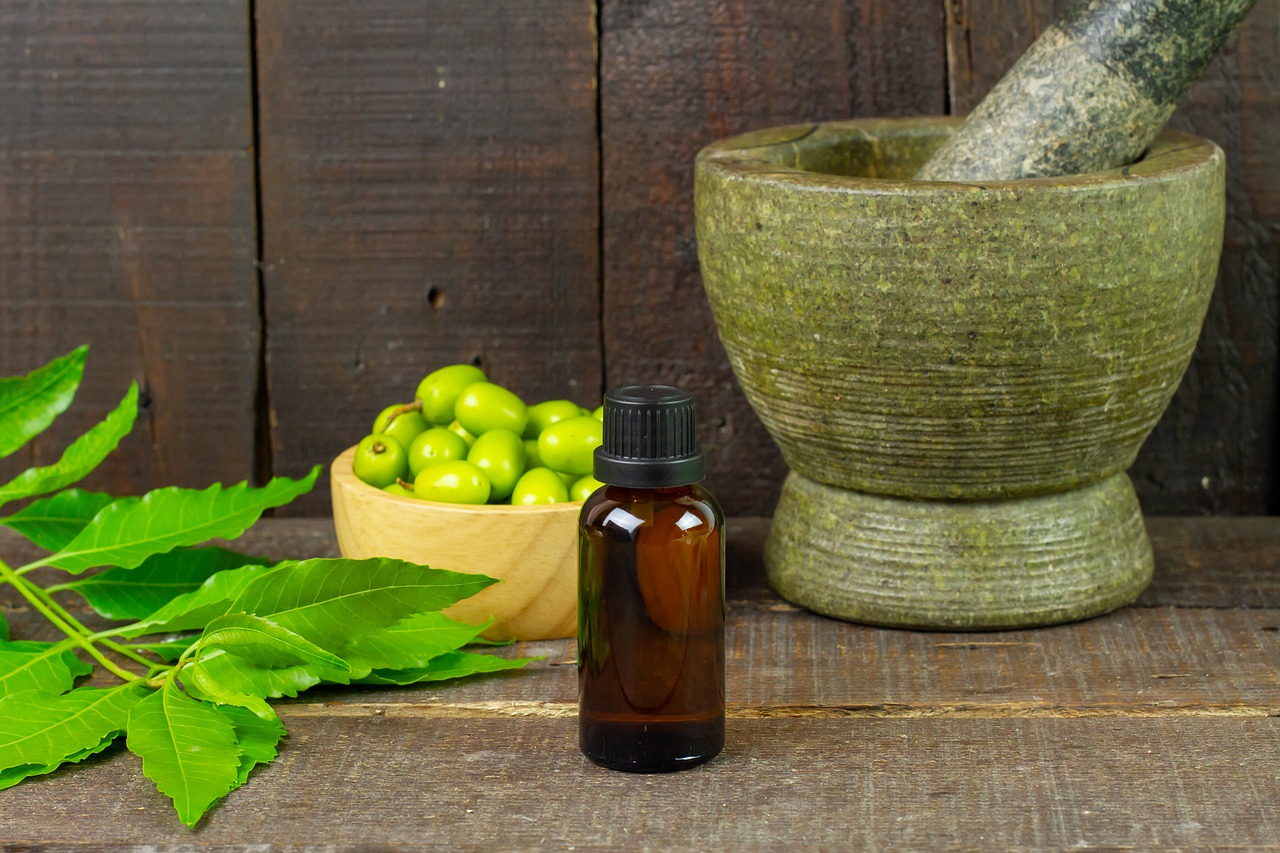
How Ayurveda Work
With such a rich historic origin, one naturally ponders how Ayurveda works and offers a traditional alternative for natural and holistic healing. According to the study of Ayurveda, the human body comprises three primary functioning energies or Tridoshas: Vata dosha, Pitta dosha, and Kapha dosha that find their origins in the five elements of nature: Air, Water, Space, Earth, and Fire.
While it is true that we all are human beings in unicity, something innate makes us unique. Similarly, while the same Tridoshas are present in all human beings, the optimum levels of these Doshas differ based on each body’s constitution. Ayurveda helps us reduce, restore, or maintain these optimum levels by offering a multitude of natural remedies and treatments using ingredients extracted from plant-based and mineral-based natural resources.
AYURVEDA AND PHYSICAL AILMENTS
We have already discussed that Ayurveda is a collective knowledge of the five universal elements and how they express themselves in the human body in the form of the three doshas Vata, Pitta, and Kapha. The Ayurvedic concept of Tridosha can also be applied to explain the development of chronic diseases. Any imbalance in the optimal level of the three doshas can lead to physical ailments and chronic diseases such as Diabetes, Arthritis, and more. Let’s take a look at some of these ailments and what Ayurvedic remedies and treatments are used to prevent or treat these ailments.
- Diabetes: Several Ayurvedic herbs and remedies can significantly lower glucose levels. Regular consumption of Karela (Bitter Gourd) juice helps control blood sugar levels and healthy cholesterol due to its richness in hypoglycemic biochemical substances. Bitter Melon also has anti-diabetic properties as it contains polypeptide-p, which naturally reduces blood sugar levels. Ayurvedic practitioners also recommend including other Ayurvedic ingredients such as Turmeric Powder, Indian Gooseberry (Amla), Curry Leaves, and Black Plum (Jamun) in the diets of diabetic people.
- Arthritis: As mentioned above, Abhyanga performed with Murivenna oil is particularly effective for joint and tissue healing as it helps ease the soreness and tenderness of joints. Ayurvedic practitioners often recommend the consumption of Garlic, Ginger, Winter Cherry (Ashwagandha), and Indian frankincense (Boswellia Serrata). Studies show that Ayurvedic remedies and practices can help reduce inflammation, ease arthritis symptoms, and limit flare-ups.
- BP: In Ayurveda, Vata, one of the three doshas, is responsible for regulating blood circulation. Hypertension can be attributed to an impairment in the level of Vata dosha in an individual. Ayurveda emphasizes lifestyle and dietary changes to regulate blood pressure and prevent Coronary Heart Disease. Terminalia arjuna is an ayurvedic herb consumed as powders and devotions. Its cardioprotective traits and anti-hypertensive compounds help alleviate physical and emotional stress, normalize blood pressure, and ease stiffened blood vessels. Other herbs such as Holy Basil (Tulsi), Indian Snakeroot (Sarpagandha), and Indian Gooseberry (Amla) contain anti-inflammatory and antioxidant elements that help regulate blood pressure.
- Digestion: According to Ayurveda, both your physiological and psychological health can be affected due to problems related to digestion. As it is no secret that a healthy gut is a secret to a healthy body and mind. When the three malas or waste materials, sweat, urine, and faeces, accumulate in excess, they damage tissues and produce various digestive problems such as lack of eating, bloated stomach, gas, indigestion, acidity, and erratic bowel movements, among others.
- Ayurvedic herbs such as Hartaki (Terminalia chebula) and Isabgol(Plantago Ovata) help reduce constipation, cholesterol and regulate bowel movements. Amla is widely used in herbal remedies to cure acidity. Other common ingredients such as ginger, Hing (Asafoetida), black pepper, cloves, and more are used to treat gastric and indigestion problems.
AYURVEDA AND EMOTIONAL WELLBEING
Similar to physiological characteristics, an individual’s psychological characteristics are also determined on the basis of the type of inherent predominance of basic principles of three bodily humors. Any distortion in their levels affects our mental health and well-being. Few ayurvedic herbs and remedies called medhya rasayana herbs (nootropic herbs) are being studied scientifically for their inbuilt properties which support cognitive functions such as improving memory and intellect. Let’s look at some of three of the most common mental health issues across the globe.
- Stress: Stress is the feeling of being overwhelmed or unable to cope with mental and emotional pressure. This feeling is all too familiar to everyone who is coping with the ongoing pandemic. Stress not only affects our coping ability but can also severely affect our body’s immune responses. Vata is the main dosha vitiated by excessive physical stress. Prolonged stress can even lead to psychiatric disorders such as depression, anxiety, immunosuppression and more. According to Ayurveda, the coping capacity of the body can be increased by lifestyle modifications, dietary interventions and/or Ayurvedic remedies and treatments. Rasayana herbs and supplements such as Brahmi (Bacopa monnieri), Ashwagandha, Shatavari, Ghritam, and chyawanprash contribute to the longevity of our mental health keeping our mind strong and protected.
- Memory: In Ayurveda, Smriti (Memory) is more related to Buddhi (Intellect) and Mana (Mind). In our modern lifestyles, an aggravated state of Vata and Kapha leads to problems such as memory loss. Ayurveda offers safe and effective remedies and treatments for supporting memory and mental performance. Brahmi is an ideal ayurvedic herb that improves brain power, memory, and has a calming effect that can alleviate stress. Kushmand (White Gourd), Vacha, and Shankhpushpi also contribute to improving mental health functions and maintaining memory.
- Anxiety: Constant exposure to stress can result in Anxiety disorders. Vata-dominant dosha types are most vulnerable to stress disorders, such as anxiety and fear. Anxiety is an expression of excess Vata in the channel of the mind. Similar to stress, Brahmi also acts as a super Ayurvedic ingredient in alleviating Anxiety. According to a study conducted in 1996, it has a calming, anti-stress effect on the central nervous system. Performing head massages or Abhyanga with Ayurvedic oils such as Bhringraj can immensely relax the body and mind. Its oral consumption in the form of herbal teas and powders helps increase oxygen supply to the brain and aids in detoxification as well.
AYURVEDA AND IMMUNITY
Amid this global pandemic, we have all realized the importance of having a strong immunity. Along with the high stress induced by the pandemic, an imbalanced diet, alcohol consumption, poor water intake, and irregular sleep patterns can further degrade our immunity levels. It is no secret that to build our immunity, we need to maintain a healthy lifestyle consisting of a balanced diet, regular exercise, and engaging in hobbies and activities that alleviate stress. Along with these daily activities, Ayurveda also offers a variety of home remedies and ayurvedic ingredients which can be incorporated into our daily routine (Dincharya). Herbal devotions (Kadha) are made from Ayurvedic herbs such as Tulsi (Basil), Dalchini (Cinnamon), black pepper, and Shunti (Dry Ginger) have been consumed in households to build immunity since ancient times. These herbs can also be consumed in the form of powders (Churna), tablets, or jams (Chyawanprash).
AYURVEDIC PRODUCTS AND SUPPLEMENTS ONLINE
Ayurveda thus offers endless possibilities and real-life applications which can be easily adapted by people despite our busy lifestyles. Ayurvedic remedies and treatments are based on timeless and universal principles that allow us to attune our bodies to our surrounding environment. Living in the aftermath of this global pandemic has restricted our access to real-life places but at the same time has allowed the online world to expand before our eyes. Today, we have easy access to helpful information related to Ayurvedic remedies, treatments, and ingredients. Ayurvedic products and supplements are also readily available online. Thus, we all can improve the quality of our lives and enjoy the benefits of Ayurveda easily from our homes.

